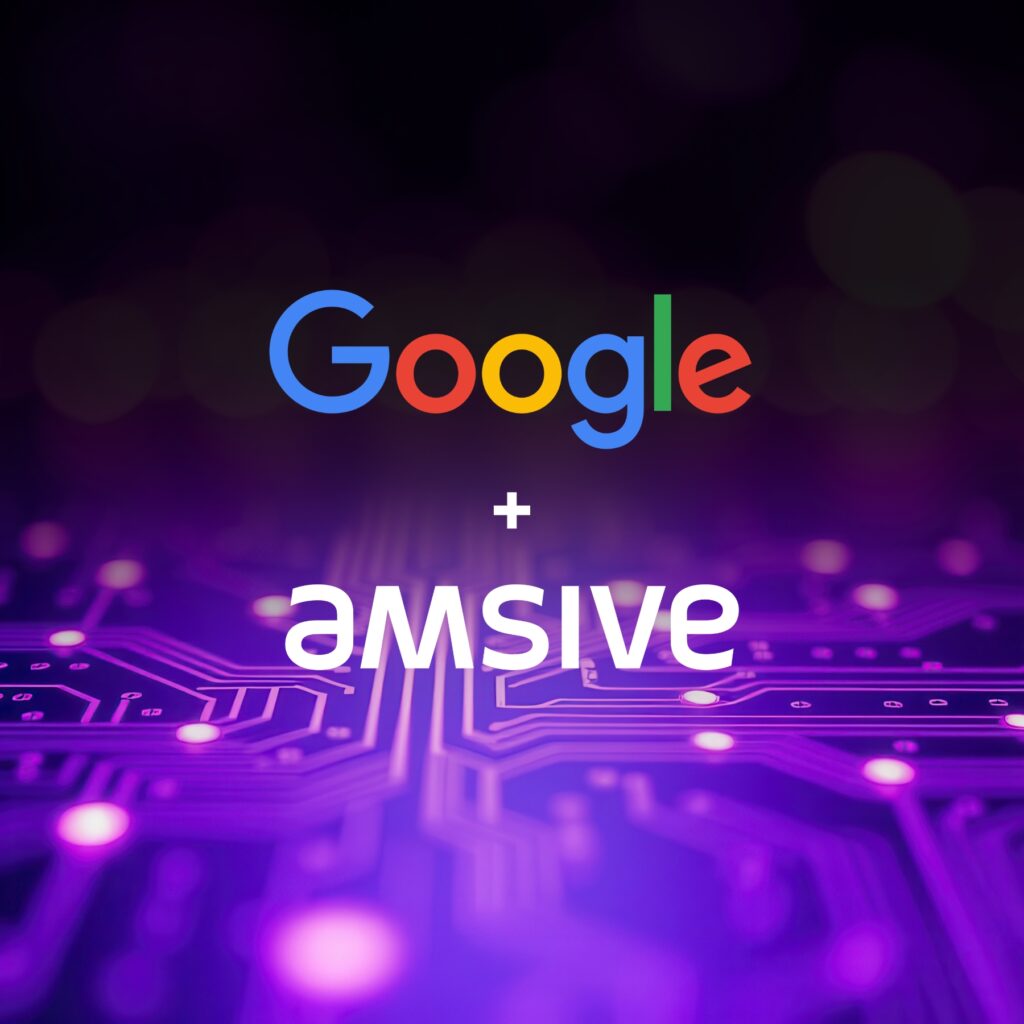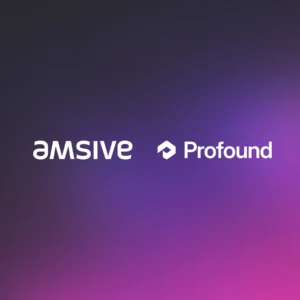Google I/O was held on May 14th at the Shoreline Amphitheater in Mountain View, California. The keynote was hosted by Google’s CEO, Sundar Pichai, and in attendance were, among others, Sameer Samat, Vice President of Product Management at Google, Liz Reid, VP, Head of Google Search, Danny Sullivan, Google’s liaison, Lily Ray, Vice President, SEO Strategy & Research at Amsive, and other amazing SEO leaders.
Google made 100 announcements that showcased a wave of innovations. Search received an upgrade with summaries of user queries and potential integration of relevant ads. Workspace apps are set for an AI-powered boost, while Android 15 will prioritize user safety with enhanced theft protection. Developers got a toolkit upgrade with access to cutting-edge models and improved resources. Google maintained that responsible AI development remains a core focus, ensuring ethical use of their powerful technology.
Jump To:
The long-awaited AI Overviews rollout, main announcements, and new features
AI Overviews are a feature of Google’s Search Generative Experience, which was first introduced in May 2023. Initially available through Google Search Labs, AI Overviews were tested on a subset of users for a year to gather training data before the official rollout.
On May 14th, 2024, Google made the long-awaited announcement about officially starting the rollout of AI Overviews. They began the rollout in the United States, with plans to expand to more countries soon. According to Liz Reid, Google’s new head of Search, AI Overviews will be available to hundreds of millions of U.S.-based searchers by the week of May 20, 2024, and to over a billion users globally by the end of the year.
According to AP News, Google’s CEO, Sundar Pichai, regarding AI Overviews, said, “This bold and responsible approach is fundamental to delivering on our mission and making AI more helpful for everyone.”
In a recent YouTube video by CNET.com, Liz Reid explained how they are infusing their Gemini AI software into various search functions—real-time information, ranking and systems quality, and new agentive, to ”harmonically expand what’s possible with Google search,” which they referred to as ”Search in the Gemini era”.
However, AI Overviews are not available for all searches, but are generated for more complex queries where the AI can add significant value beyond traditional search results. The answers generated are based on the AI’s understanding of the search queries and the content it finds on the topic across the web’s resources.
The main announcements and new features of the recently rolled out AI Overviews by Google are:
AI-generated summaries
AI Overviews provide AI-generated summaries or answers to search queries, combining information from multiple web sources into a single overview at the top of search results. This aims to help users quickly find answers without having to visit multiple websites.

Powered by Gemini
AI Overviews are powered by Google’s custom Gemini AI model and language understanding capabilities. The overviews cite and link to the web pages used as sources.
Fine-tuning responses to make AI Overviews simpler or more detailed
This feature allows users to adjust the level of detail in the AI Overview by clicking “Simpler” to get a more basic summary or “Break it down” for a much more in-depth explanation. This refines the AI Overview without the need for multiple searches, providing flexibility based on the user’s needs.
Search with video to optimize video content for search visibility
Google Lens will allow users to record a video and ask questions while recording. Google will then provide responses based on analyzing the video content. This will enable a new form of visual search specifically optimized for video, making video content more discoverable in search results.
AI-organized search results emphasizing diverse content types
Google will use AI to categorize search results into unique sections with AI-generated headlines featuring a wide range of content formats like text, images, videos, etc. This aims to surface diverse perspectives and content types to help users explore a topic more comprehensively.
A new “Web” filter to view only traditional website links
A new filter named “Web” was introduced to allow users to view only the classic blue link website results, removing other types of results like images, videos, news, etc. This provides an option to see just the traditional text-based search experience, separate from the AI Overviews and other AI-powered result types.

Different publications have shared tips on how to make “Web” your default search results. Two examples are:
- Get Google search results without AI -ads or anything but links
- This hack forces Google to give you web results
According to a recent document by Google Search Central, ”AI Overviews appear in Google Search results when our systems determine that generative responses can be especially helpful—for example, when you want to quickly understand information from a range of sources, including information from across the web and Google’s Knowledge Graph. No action is needed for publishers to benefit from AI Overviews.”
Google also talked about Project Astra, their ambitious initiative to develop a next-generation AI assistant that can understand and respond to multimodal inputs like text, images, video, and audio in real-time conversations. While it is not directly related to AI-powered search, some of Project Astra’s capabilities are being integrated into Google’s search products and services.
They also talked about plans to bring the video understanding capability from Project Astra to its Gemini Live conversational AI later this year. This will allow users to share videos as part of their search queries and get relevant information or assistance. So, while Project Astra itself is a broader research effort towards building a “universal AI agent” that can perceive and converse naturally, some of its underlying technologies, like multimodal processing and contextual understanding, are being applied to enhance Google’s search experience with AI Overviews and video understanding.
The goal is to make search more conversational, contextual, and capable of processing diverse input formats beyond just text queries. However, Project Astra as a whole remains in the prototype stage and is not yet available for public use.
Here at Amsive, our team has been experimenting with AI Overviews (previously called SGE—Search Generative Experience) for a year. In an article written by Lily Ray adapted from SMX Munich 2023 presentation titled How AI is Impacting Paid and Organic Search, Lily pointed out that “the full impact of AI won’t be seen for quite some time, but it’s important to state that AI chatbots will not replace search. However, they will change and enhance the way people search,”—something we are now experiencing with the new AI Overviews search results.

But is this change for the better?
Although Google claims that they are constantly improving and adjusting SGE, we can still see a few examples of contradictory and incorrect answers that may affect paid and organic search. And now that AI Overviews have rolled out, these misguided, unhelpful and sometimes dangerous answers are still seen to be dominating search as recently as recently as the 22nd of May, as shown in the image below.

In another example, AI Overview provides a contradictory answer, describing flying squirrels as both herbivores and carnivores.

Here’s what Mark Williams-Cook, the founder of the SEO tool Also Asked had to say about AI Overviews, “While we’ve seen disinformation online before, the misinformation generated by AI Overviews is particularly dangerous in my opinion. As humans, we understand that another human writing something may be biased, incorrect, or may even lie, our natural defenses are up. We intrinsically understand how other humans work. Conversely, the vast majority of users have no idea how AI Overviews are generated and the inherent flaws in the technology that make them generate spurious answers. This lack of knowledge, combined with the trust people have given Google over the years is a recipe for disaster – one that isn’t easily fixed.”
AI Overviews becoming available to the public
AI Overviews are shown selectively and for complex queries. Google has not disclosed the percentage of queries that will generate an AI Overview, maintaining that the decision to display an overview is based on the potential to add value rather than to hurt its ad performance and revenue.
Despite speculation that AI Overviews might replace featured snippets, Google has confirmed that both will coexist, with featured snippets continuing to appear in search results.
Below is an image showing how the AI overview looks in Google Search.

Hema Budaraju, Senior Director of Product, Search Generative Experience at Google, highlighted that link cards within AI Overviews generate a higher CTR compared to regular search results. However, Google has not provided detailed data on AI Overview impressions and clicks in Google Search Console, as these metrics are aggregated with traditional search data.
This was seen on X (formerly Twitter) by a user who asked Google about tracking performance metrics for answers. The image below shows how Google responded, indicating that the performance will be tracked in the Google Search Console without the granular details:

This lack of granular data has raised concerns among users about the transparency of AI Overview performance metrics.
While Google does not provide a dedicated report or Search Results appearance filter for AI impressions, clicks, or CTR in Google Search Console, some SEO tools have started reporting on AI Overview appearances. Tools such as SEMrush are beginning to track these metrics, offering some insights into how AI Overviews are performing in search. The image below shows how AI Overview metrics are displayed.

However, there are limitations to how SEO tools are currently able to track AI Overview visibility. Because SEO tools primarily track rankings from logged-out, incognito Google accounts, these tools will not pick up on AI Overviews, which are currently only shown to logged-in Google users with incognito results turned off.

The below thread by Mark Traphagen, of SEO Clarity, explains further why this presents a major limitation of SEO tools:
How is the public reacting to AI Overviews?
Publishers who feared losing traffic after the Helpful Content Update and the recent March Core Update seem to be panicking with the launch of AI Overviews, as evidenced by the few headlines seen following the articles:
Bye Bye, AI: How to turn off Google’s annoying AI overviews and just get search results
Google’s New Search Engine Is Bad News for the Web Economy
Google AI Overviews: More searches, less satisfaction
Site Traffic Down? Here Are the Big AI Changes Google Made to Its Search Tool
The public’s reaction to AI Overviews has been mixed, with some users appreciating the enhanced search experience.

However, concerns about the accuracy and relevance of AI Overviews have been voiced by users on social media and Google Support forums. The image below shows the disappointment of a user after getting an unhelpful answer to the query ‘cheese not sticking to pizza,’ which suggested adding non-toxic glue to the cheese for more tackiness.

To gain further insight into user sentiments towards AI Overviews, we conducted additional research. We found an interesting post on X(formerly Twitter) in response to the query “has a dog played in the NBA?” The post, however, contained an error, stating that dogs, including trained service dogs and others, have participated in the NBA.

We also saw another interesting example where a user searched “health benefits for running with scissors” and the AI generated a ridiculous response. It claimed that running with scissors is a cardio exercise that increases heart rate, which was both inaccurate and unhelpful as shown in the image below.

In another interesting example, a user searched for “1000 km to oranges.” The AI overview provided an incorrect answer, stating that “the solution to transporting oranges 1000 km is to feed a horse 2,000 oranges, one for each kilometer traveled, and then sell the remaining 1,000 oranges at the market.” as shown in the image below.

Some users are even looking for an option to remove them from search results, as seen on Google support forum.

In an attempt to get rid of AI Overviews, users are discussing a Chrome extension with over 2,000 users that hides AI Overviews from search results. They hope its user base will increase with the global rollout as shown in the image below.

Webmasters can opt out of having their content appear in AI Overviews by implementing robots.txt or meta tag settings. Google went ahead and provided a document that had details of how website owners or webmasters can have their content not displayed on AI overviews. However, searchers do not currently have the option to opt out of AI Overviews because it’s part of the search feature.
Like any other technology, AI Overviews has faced challenges, including instances where they provided inaccurate advice. Google has put mechanisms in place for users to report harmful or inaccurate AI Overviews by clicking on the three dots at the top of the AI overview. Google anticipates that AI Overviews results are likely to improve over time, displaying fewer inaccuracies, just like we saw with featured snippets when those first launched.
What does this mean for Search?
AI Overviews represents how Google Search is evolving to offer more detailed and contextually rich answers to user queries directly within search results. Google believes it has the potential to transform how users access and interact with information online.
While the benefits are clear, it’s still a work in progress, and Google still needs to improve the accuracy of the answers generated. Through AI Overviews, AI empowers users to access knowledge more effectively while supporting a rich, diverse web.
Now that AI-driven search is here, Google wants you to “let Google do the Googling for you.” We hope both Google and the user benefit from these advancements.
Interested in more Search content? Watch Lily Ray and Inna Zeyger discuss the future of SEO in the Age of AI in Amsive’s latest webinar, or, let’s talk about how to achieve more for your marketing—and your business.







